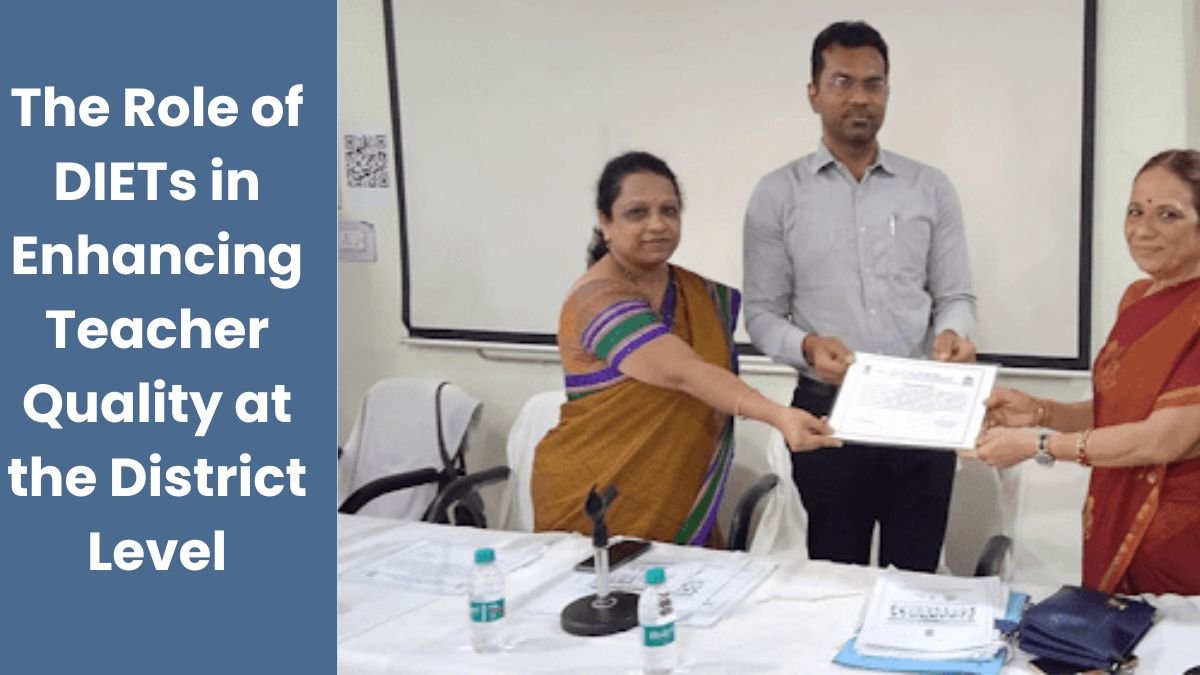Many efforts have been made to strengthen and make the education system in India effective, but improving teacher quality has always been a major challenge. District Institutes of Education and Training (DIETs) were established with this objective. These institutes have emerged as a link between policy and ground implementation in the field of education.
Let us discuss in detail the role of DIETs, their need, functionality, challenges and future prospects in this article.
What are DIETs and why were they created?
DIETs were established by the Government of India in the 1990s under the District Primary Education Programme (DPEP), with the aim of training teachers at the local level. After this, this initiative was also included in programs like Sarva Shiksha Abhiyan (SSA) and Rashtriya Madhyamik Shiksha Abhiyan (RMSA).
DIETs are primarily training centres for teachers who teach in primary and secondary schools. Their aim is to improve the quality of education at the grassroots level and make teachers aware of modern educational methods.
Training of teachers according to local needs
DIETs have proved to be a boon for teachers who teach in remote or rural areas and have limited resources. Here subject-wise training, workshops on child psychology, classroom management and digital tools are organized.
These institutes also have the facility of in-service training, which trains already appointed teachers with new technologies from time to time.
Important role in curriculum development
DIETs are not only training centres, but also play an active role in curriculum development. They prepare locally appropriate curriculum material in collaboration with the state level education board.
For example, in districts where tribal languages are more spoken, DIETs assist in incorporating local languages into the curriculum so that students feel better connected to education.
Centre for Education Research and Evaluation
DIETs regularly conduct research on the quality of teaching in schools, student performance, dropout rates, and teacher effectiveness. This helps in linking policies to ground reality.
In addition, teachers themselves conduct action research, which improves their personal efficiency and teaching style.
Providing leadership at the local level
DIETs, in collaboration with school administration, principals, and district education officers, provide leadership in implementing local education policy. These institutions not only guide policies but also support schools in training, innovation, and management.
Improving teacher efficiency
DIETs have done a remarkable job in bridging the training and resource gap between teachers in rural and urban areas. Through local training, every teacher gets equal opportunity, which improves the education system of the entire district.
Promoting inclusive education
DIETs ensure that teachers can create an inclusive and supportive environment for children with disabilities, disadvantaged sections and students from different social groups. For this, special training and materials are also provided.
Developing district-level programs
Each district has different educational needs – somewhere there is a poor state of mathematics, somewhere there is weakness in languages. DIETs identify local problems and create programs focused on them such as Maths Efficiency Campaign, book fairs to increase interest in studies, etc.
Challenges faced by DIETs
Although the role of DIETs is important, they face several challenges:
- Lack of resources: Many DIETs do not have basic facilities such as buildings, digital equipment, libraries or labs.
- Lack of staff: Many times there are no subject experts, which affects the quality of training.
- Lack of coordination: Lack of coordination between the state and local education departments hampers implementation.
Future prospects and improvements
The following steps can be taken to make DIETs effective:
- Incorporation of technology: DIETs can make teacher training more comprehensive through online platforms, e-learning modules, webinars and digital libraries.
- Continuous professional development: One-time training is not enough. Continuous Professional Development (CPD) needs to be focused on to keep teachers updated from time to time.
- Increase in financial support: DIETs should be given more resources and budget from both the central and state levels so that they can provide quality training.
Conclusion
DIETs are the foundation of education reform in India. If they get the right resources, technology and leadership, they can bring revolutionary changes in the quality of education. Their strength will not only make teachers competent but students will also take interest in education and contribute to national progress.
What is your opinion? Should DIETs be made more digital? Or what other reforms do you think are needed in teacher training? Do share your suggestions.
